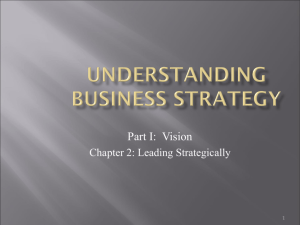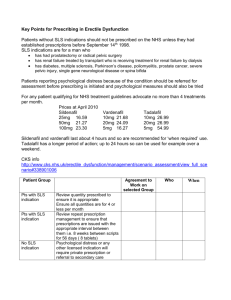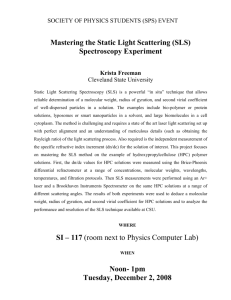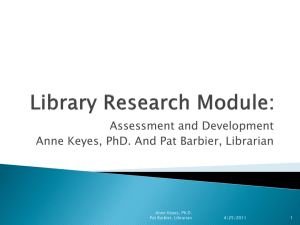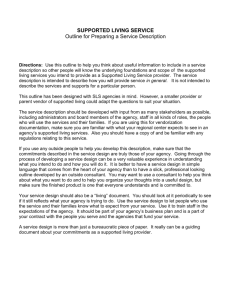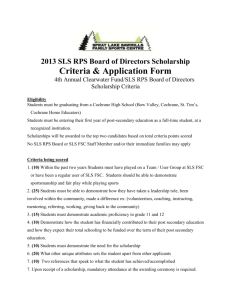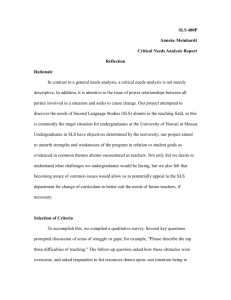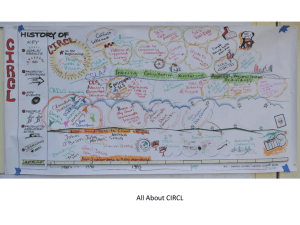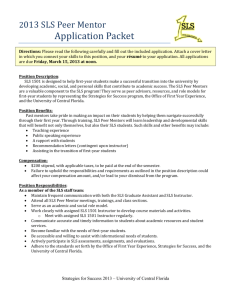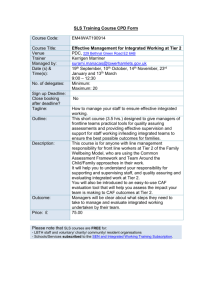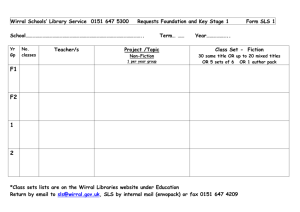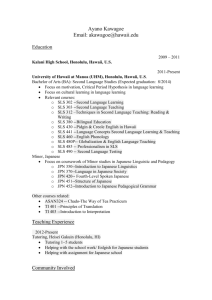Alert_Report_40_Oct_2007 - League for Innovation in the
advertisement
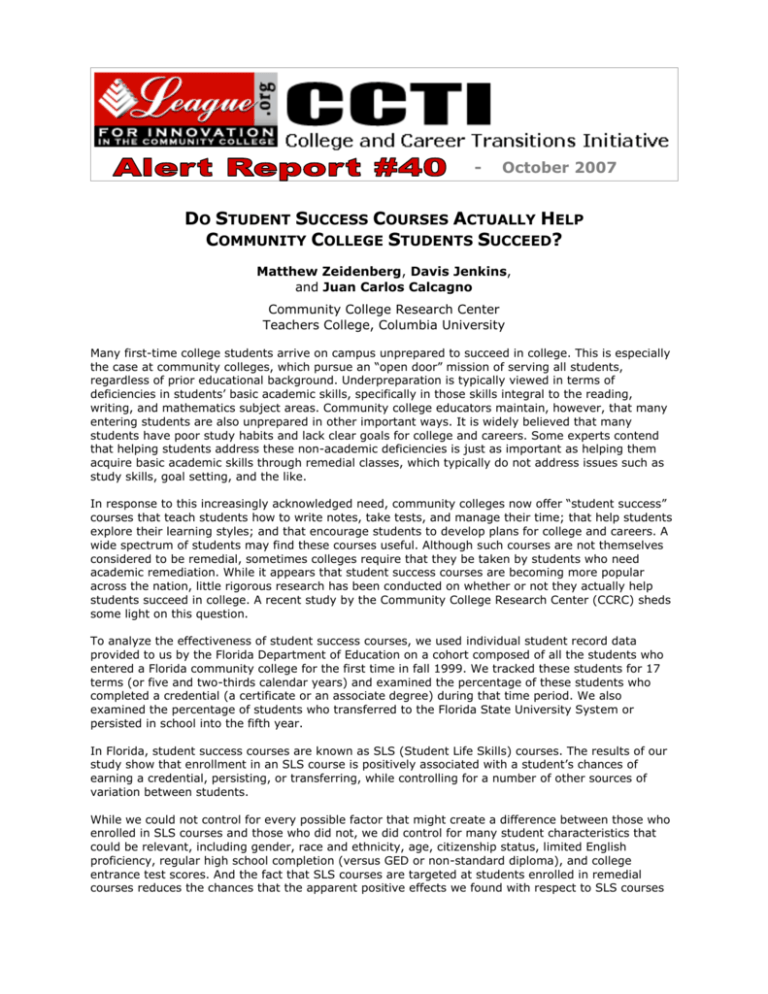
- October 2007 DO STUDENT SUCCESS COURSES ACTUALLY HELP COMMUNITY COLLEGE STUDENTS SUCCEED? Matthew Zeidenberg, Davis Jenkins, and Juan Carlos Calcagno Community College Research Center Teachers College, Columbia University Many first-time college students arrive on campus unprepared to succeed in college. This is especially the case at community colleges, which pursue an “open door” mission of serving all students, regardless of prior educational background. Underpreparation is typically viewed in terms of deficiencies in students’ basic academic skills, specifically in those skills integral to the reading, writing, and mathematics subject areas. Community college educators maintain, however, that many entering students are also unprepared in other important ways. It is widely believed that many students have poor study habits and lack clear goals for college and careers. Some experts contend that helping students address these non-academic deficiencies is just as important as helping them acquire basic academic skills through remedial classes, which typically do not address issues such as study skills, goal setting, and the like. In response to this increasingly acknowledged need, community colleges now offer “student success” courses that teach students how to write notes, take tests, and manage their time; that help students explore their learning styles; and that encourage students to develop plans for college and careers. A wide spectrum of students may find these courses useful. Although such courses are not themselves considered to be remedial, sometimes colleges require that they be taken by students who need academic remediation. While it appears that student success courses are becoming more popular across the nation, little rigorous research has been conducted on whether or not they actually help students succeed in college. A recent study by the Community College Research Center (CCRC) sheds some light on this question. To analyze the effectiveness of student success courses, we used individual student record data provided to us by the Florida Department of Education on a cohort composed of all the students who entered a Florida community college for the first time in fall 1999. We tracked these students for 17 terms (or five and two-thirds calendar years) and examined the percentage of these students who completed a credential (a certificate or an associate degree) during that time period. We also examined the percentage of students who transferred to the Florida State University System or persisted in school into the fifth year. In Florida, student success courses are known as SLS (Student Life Skills) courses. The results of our study show that enrollment in an SLS course is positively associated with a student’s chances of earning a credential, persisting, or transferring, while controlling for a number of other sources of variation between students. While we could not control for every possible factor that might create a difference between those who enrolled in SLS courses and those who did not, we did control for many student characteristics that could be relevant, including gender, race and ethnicity, age, citizenship status, limited English proficiency, regular high school completion (versus GED or non-standard diploma), and college entrance test scores. And the fact that SLS courses are targeted at students enrolled in remedial courses reduces the chances that the apparent positive effects we found with respect to SLS courses CCTI Alert Report #40 Page 2 can be attributed to the socioeconomic status or academic preparedness of SLS enrollees. We are therefore confident that at least some of the positive differences in students’ outcomes we found are related to participation in an SLS course. Given this evidence, community college educators may want to consider expanding requirements that students take SLS courses. We hypothesize that student success courses may contribute to positive outcomes by helping students early in the college experience develop clearer goals for education and careers, better ideas of what it takes to succeed in college, and some practical skills useful for achievement. Further research is needed on the question of which aspects of these courses are most strongly associated with improved rates of student success. Even in Florida, not all SLS courses teach the same set of topics. Which set of topics seems most useful? What teaching methods are most helpful? How can student success courses be customized to serve the needs of particular student populations? Given the increasing popularity of student success courses as well as initial research that associates such courses with positive outcomes, more study is certainly warranted. For additional information: Zeidenberg, M., Jenkins, D., & Calcagno, J. C. (2007). Do student success courses actually help community college students succeed? CCRC Brief No. 36. New York: Community College Research Center, Teachers College, Columbia University. Available online at: http://ccrc.tc.columbia.edu Florida Department of Education. (2006). Taking student life skills course increases academic success. Data Trend #31. Tallahassee: Author. Available online at: http://www.fldoe.org/cc/OSAS/DataTrendsResearch/DT31.pdf This Alert Report was developed by the Community College Research Center (CCRC), Teachers College, Columbia University. The study on which this Alert Report is based was funded by Lumina Foundation for Education as part of the Achieving the Dream: Community Colleges Count initiative (see http://www.achievingthedream.org). A Brief describing the study is available through the CCRC website, http://ccrc.tc.columbia.edu.
